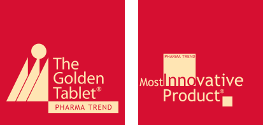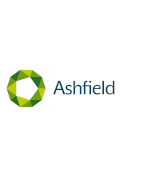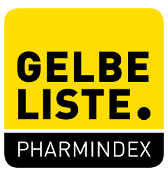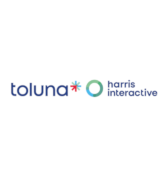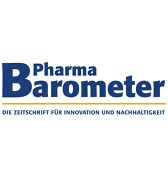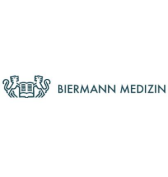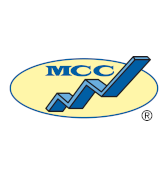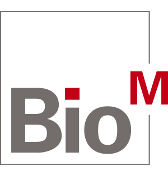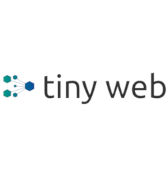DUBLIN–(BUSINESS WIRE)–Horizon Therapeutics plc (Nasdaq: HZNP) today announced the first patient has enrolled in a Phase 2, open-label, proof-of-concept trial to evaluate its development-stage medicine daxdilimab (HZN-7734), a potentially first-in-class, fully human monoclonal antibody targeting immunoglobulin-like transcript 7 (ILT7), to treat people with moderate-to-severe alopecia areata. Alopecia areata is a common, acute onset autoimmune disorder characterized by transient, non-scarring hair loss.1 It is the second most common form of alopecia and is associated with comorbidities including depression, anxiety and autoimmune diseases such as lupus erythematosus and vitiligo.2 More than 600,000 people live with alopecia areata in the United States, of which approximately 40,000 are appropriate for treatment with novel therapies, including biologics.3
“In alopecia areata lesions, plasmacytoid dendritic cells, or pDCs, are present and interferon levels are elevated in the scalp tissue,” said Theresa Podrebarac, M.D., M.Sc., senior vice president, clinical development, Horizon. “Early in vivo studies indicate that daxdilimab binds to ILT7 on the surface of pDCs, which leads to the depletion of these cells. As a part of Horizon’s pathway-driven approach to autoimmune diseases, we believe this mechanism could address the unmet treatment need for patients with alopecia areata, that are partially driven by high levels of interferon.”
Approximately 30 participants who meet trial eligibility will be enrolled. The primary endpoint is the percent change from baseline in Severity of Alopecia Tool (SALT) score at Week 24. This endpoint is a well-validated metric and widely utilized tool for determining the degree of hair loss and regrowth4. SALT scores are measured on a scale from 1 to 100, with 1 representing “no hair loss” and 100 representing “total hair loss.” Secondary endpoints include the percent change from baseline in SALT scores and the proportion of participants who achieve ≥50% improvement in SALT over time through Week 48.
Key inclusion criteria include ≥50% and ≤95% total scalp hair loss as defined by the SALT score at screening and day one of the trial. Participants must be experiencing a current episode of hair loss lasting >3 months but <7 years. An investigator’s assessment will be conducted to ensure that hair regrowth is possible and there is no evidence of active regrowth present at the baseline, with no known history of significant regrowth in the previous six months.
“Alopecia areata is a complex genetic disease that greatly impacts quality of life for patients who experience patchy, and sometimes total, hair loss involving the scalp, eyebrows and other areas,” said Brett King, M.D., Ph.D. associate professor of dermatology, Yale University. “There is a large unmet medical need for these patients, and this trial will help evaluate the effect of Horizon’s anti-ILT7 fully human monoclonal antibody on regrowing hair in those with more severe disease.”
About Daxdilimab (HZN-7734)
Daxdilimab (HZN-7734) is an anti-ILT7 human monoclonal antibody that depletes certain dendritic cells. Depleting these cells may interrupt the cycle of inflammation that causes tissue damage in a variety of autoimmune conditions. Horizon is also investigating daxdilimab in systemic lupus erythematosus and plans to investigate it in dermatomyositis, discoid lupus erythematosus and lupus nephritis.
About Horizon
Horizon is focused on the discovery, development and commercialization of medicines that address critical needs for people impacted by rare, autoimmune and severe inflammatory diseases. Our pipeline is purposeful: We apply scientific expertise and courage to bring clinically meaningful therapies to patients. We believe science and compassion must work together to transform lives. For more information on how we go to incredible lengths to impact lives, visit www.horizontherapeutics.com and follow us on Twitter, LinkedIn, Instagram and Facebook.
Forward-Looking Statements
This press release contains forward-looking statements, including, but not limited to, statements related to the potential benefits of daxdilimab; the expected scope, endpoints and timing of Horizon’s Phase 2 clinical trial of daxdilimab in alopecia areata and other statements that are not historical facts. These forward-looking statements are based on Horizon’s current expectations and inherently involve significant risks and uncertainties. Actual results and the timing of events could differ materially from those anticipated in such forward-looking statements as a result of these risks and uncertainties, which include, without limitation, risks related to clinical trials, including the fact that prior results may not predict future clinical trial outcomes; impacts of the COVID-19 pandemic and actions taken to slow its spread, including potential delays in clinical trials; regulatory obligations and oversight, including any changes in the legal and regulatory environment in which Horizon operates and those risks detailed from time-to-time under the caption “Risk Factors” and elsewhere in Horizon’s filings and reports with the SEC. Horizon undertakes no duty or obligation to update any forward-looking statements contained in this press release as a result of new information.
References
- Trueb RM, Dias M. Alopecia Areata: a Comprehensive Review of Pathogenesis and Management. Clin Rev Allergy Immunol. 2018;54(1):68-87.
- Chu SY, Chen YJ, Tseng WC, et al. Comorbidity profiles among patients with alopecia areata: the importance of onset age, a nationwide population-based study. J Am Acad Dermatol. 2011;65(5):949-956.
- Mirzoyev SA, Schrum AG, Davis MDP, Torgerson RR. Lifetime incidence risk of alopecia areata estimated at 2.1% by Rochester Epidemiology Project, 1990-2009. J Invest Dermatol. 2014;134(4):1141-1142.
- Olsen EA, Canfield D. SALT II: A new take on the Severity of Alopecia Tool (SALT) for determining percentage scalp hair loss. J Am Acad Dermatol. 2016;75(6):1268-1270.
Contacts
Tina Ventura
Senior Vice President, Chief Investor Relations Officer
Investor-relations@horizontherapeutics.com
U.S. Media:
Geoff Curtis
Executive Vice President, Corporate Affairs & Chief Communications Officer
media@horizontherapeutics.com
Ireland Media:
Gordon MRM
Ray Gordon
ray@gordonmrm.ie
